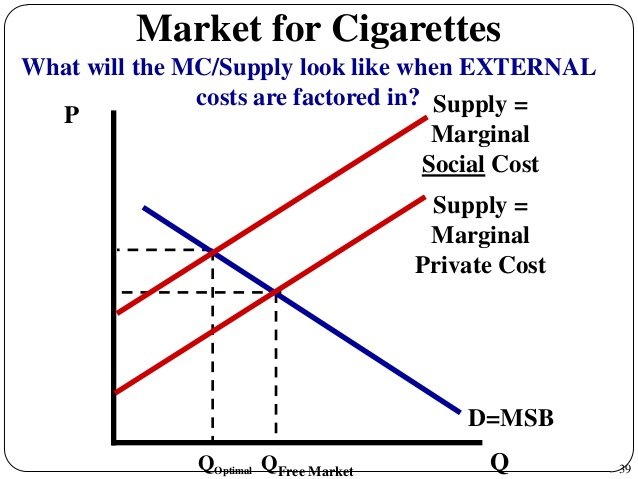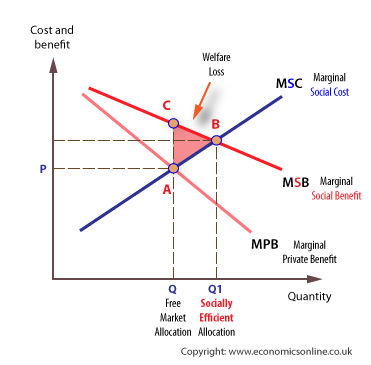Preventing Human Extinction Disasters: Antifragility and Externalities in Politics
While on the surface, the platforms of Jill Stein, the Green Party Presidential candidate, and Bernie Sanders are virtually identical [1], there are huge differences between them in practice. Most educated people don't see this because they are focused on facts way too literally and fail to see the broader meta-issues that externalities present. In Zero to One, PayPal Mafia boss Peter Thiel asks, "What important truth do very few people agree with you on? [2]" I have too many to count, but one of them is that when you consider the externalities fully, it is possible to argue that externalities are more important than the face value of political platforms.
A hypothesis that follows that is that Jill Stein is more similar to Donald Trump than to Bernie Sanders. This is because a disruption of the current two party system and tons of other unconsidered variables have huge future implications that have not been accounted for. People take Trump's words too literally, rather than realizing that the Republican Party platform is different from what Trump says, which are both different from what he will actually do. And all of that is still different from what will actually happen in the world after accounting for all the externalities. We can perpetually go down a rabbit hole here, which can be visualized as multi-dimensional fractals. How trippy is that? For more details about this, look into Chaos Theory and the Butterfly Effect [3]. Small changes in initial conditions can have huge implications in the future. This is why humans are so bad at predicting the future and figuring out what is truly the best thing to do. I don't claim to have the answers, but anyone who says that voting for a particular candidate is definitely good or bad is horribly ignorant and arrogant. I have made some predictions, but with more data, it is extremely likely that I would reject my hypothesis.
The main focus of the Green Party is environmentalism [4], and externalities are extremely relevant in the analysis of environmentalism. One of the key fundational concepts of environmental economics is that the environment is a public good. A public good is non-excludable and non-rivalrous [5]. Non-excludable means that it's not possible to exclude people who have not paid from using it. Non-rivalrous means that use by one individual does not make the good less available to other consumers. Due to these attributes of public goods, an individual's actions come with externalities, costs and benefits that affect parties not involved in the decision.

Smoking hurts second hand smokers, so the social costs are higher than the costs incurred by the smoker.

A good example of positive externalities in the space of cryptocurrency and environmentalism is SolarCoin. Nick Gogerty, cofounder of SolarCoin, has done research in futurism and economics, and wrote The Nature of Value, one of the best books I've ever read on economics. A key consideration of SolarCoin is incentivizing the production of solar energy. This is a positive externality that goes beyond the value of the produced energy itself. By increasing the marginal private benefits of producing solar energy through a proof-of-stake-time cryptocurrency, people become more motivated to switch to solar power. Learn more about the project and claim your free SolarCoins [6]!
Previously, in my Bitesized Lessons in Antifragility series, I had discussed the importance of decentralization [7]. Decentralization decreases the chance of catastrophic rare events, which we can call Black Swans. While according to the platform, the Green Party advocates for socialism, which is a horrible centralized system, the actual result of voting for the Green Party is quite different. This is because Jill Stein has no real chance of becoming the president and that even if she gets elected in a Black Swan event, she would be taking power away from the existing centralized power structures. Both Sanders, Trump, Stein have all criticized the centralization of wealth on Wall Street; however, Sanders is fundamentally different from Stein and Trump. He sold out.

This shows poor ability in identifying what are the most important issues in human society. Bernie means well, and like Trump, he has done a great job of bring attention to problems that typical politicians do not talk about. However, in the end, he demonstrated his poor understanding of risk management. Both Trump and Stein continues to attack the establishment Republicans and Democrats, which leads to the decentralization of political power. Bernie's endorsement of Hillary Clinton would lead to further centralization of political power. Trump has done a great job disrupting the Republican Party, and Stein is continuing Bernie's legacy of disrupting the Democratic Party. Both Trump's and Stein's actions promote the viability of Third Parties in the US political system in different ways. If more parties get elected to Congress, then we have more decentralization of power. It doesn't matter that the Green Party's platform is supposedly more socialist and centralized. That is simply an ideal, not something that would affect reality immediately.
While the Green Party shows a horrible understanding of Black Swan risks in their economic policy, they are highly aware of Black Swan risks when it comes to environmental problems. And let's face it, when people hear the phrase "Green Party", they don't think about the economy; they think about tree huggers. If the Green Party receives a significant amount of votes, people will become more conscious of the huge dangers of various environmental issues. This is crucial if we want to avoid an extinction level catastrophe.
There are several Black Swan extinction risks that everyone should be aware of:
- Genetically modified organism food products (GMOs)
- Asteroids
- Global Warming
- Artificial Intelligence
- Bioterrorism
- Nuclear war
The Green Party is conscious of all these problems and seek to prevent them actively. Trump is largely indifferent, while the Democratic Party actively promotes the development of these threats without giving much thought to analyzing the safety risks properly. So although the Democratic and Green Parties are close economically and socially; they are very different when it comes to dealing with global catastrophic events. The Green Party values them extremely highly, almost to the point of paranoia, while the Democratic Party arrogantly and idiotically ignore them.
Now you might point out that Democrats believe in global warming while Trump blames it on China. That's a valid point; however, global warming isn't the biggest nor the most immediate threat on this list. Also, Scott Adams of Dilbert has made a very strong argument that Trump does in fact believe in global warming [8]. Adams is an expert in persuasion, which is why Dilbert is such a successful cartoon series. He has made dozens of blog posts that analyze Trump's persuasion abilities.
Here's Adams's main argument:
"And that means Donald Trump is – literally – the only human being on Earth who can persuade Republicans that climate change is real. Some of you might recognize this technique as “Nixon goes to China.” Richard Nixon paced Republicans by being a commie-hater, just like them. When Nixon decided to get friendly with China, his supporters trusted him because they knew he thought the same way they did. When Nixon changed his mind on China, his supporters figured they could be flexible too. That’s pacing and leading."
"Does Trump really believe climate change is a hoax? Let me tell you the answer to that question in the clearest possible terms, based on everything I know about the field of persuasion.
Answer: No
But he might have doubts about the predictive ability of models. That’s a separate question."
Unless you really believe that Trump has the IQ of a kangaroo, then you should find this argument quite compelling. By all metrics, he is at least above average in intelligence and very flexibly minded.
Also, @xtester has written some great posts on how antifragile meta-solutions can have great positive environmental impacts [9]
With the elephant in the room out of the way, let's now look at the rhinoceros in the room: nuclear war. If you believe that Trump is crazy, then the risk of nuclear war is very high. However, once again, Adams has made compelling arguments that Trump is less risky than Clinton [10].
Here's his key argument:
"Donald Trump has about five decades of track record in business that includes no violent acts whatsoever. Nor have we heard stories of any Trump temper tantrums in the business world that go beyond the scope of what any CEO does on a bad day. Somehow Trump built hundreds of business entities, amassed great wealth, and raised a great set of kids. And nowhere in the story is the part where he did something scary or dangerous. That sort of behavior doesn’t pop up suddenly when you’re a grandfather."
"Trump doesn’t drink. He never has. He doesn’t take illegal drugs either. He’s the same guy at night that he is in the morning. He’s not a chemical cyborg with a personality that is driven by big pharma.
Clinton, on the other hand, is part human, part pharmacological grab-bag. Her personality is at least partly determined by whatever cocktail of meds and wine are in her system at any given moment. In other words, she is just like most adults. Our personalities are the product of the drugs in our system, for better or for worse."
While a Black Swan event of Trump suddenly going crazy does exist, it's pretty obvious that Clinton has far more of a fat tail risk distribution. Any time when you introduce an extra variable of questionable health and drugs, you increase variance in behavior. Statistically, Clinton is riskier than Trump when it comes to making rash decisions.
Next, let's consider bioterrorism. Nobody really has a good solution to this problem; I think it is an inevitable threat. I think universal healthcare is generally a bad idea due to centralization, but there is an argument for universal healthcare when it comes to epidemiology as a way to counter bioterrorism. The marginal social costs and negative externalities are simply way too high. Not to mention the strong network effects of epidemics. Trump is probably the best choice in this aspect, as decreasing immigration from terror prone countries should decrease the chance of bioterrorism. This has nothing to do with Islamophobia; this is simply big picture risk management. Now it is very possible that Trump and many of his supporters are prejudiced against Muslims, but excluding people from a community really isn't as bad as the threat of potentially millions of people dying. This is a matter of mathematically analyzing risk to prevent the most number of human deaths. Never fully rely on emotions when you make big decisions that affect the lives of millions of people.
Artificial intelligence is probably not the biggest immediate threat, and if the risk is even real, it would happen in the private sector anyway, regardless of who is the President. Most of Silicon Valley is biased in favor of Clinton though, so if Skynet is coming, Clinton will make Skynet come slightly earlier.
Similarly, all the candidates seem to support space exploration, so it's unclear who is the best for preventing that threat. For now, just keep up to date with World Asteroid Day [11].
Finally, we come to the huge threat of GMOs. This is a problem that even most scientists cannot comprehend due to lack of awareness of statistics and nonlinear externalities. The argument is essentially that there is increased risk of global crop failure or food poisoning, so we should exercise the precautionary principle [12, 13].

Jill Stein and Bernie Sanders are very much against GMOs; Trump's position is uncertain; Hillary's pockets are lined with Monsanto bribes [14]. Trump seems to be personally anti-GMO, but will probably end up supporting the Big Agriculture industry. Hillary is a known supporter of Big Agriculture and Bernie has endorsed her. On this issue, Stein is by far the best option, while Trump equal to or slightly better than Clinton.
Note that I did not analyze Gary Johnson in this article. He is very good in terms of decentralizing monetary policy and governmental power, however as far as I know, he's no better than Clinton when it comes to preventing Black Swan threats. Based on my current analysis, I would rank the candidates in this order: Stein > Trump > Johnson > Clinton.
Thanks for reading! Let me know your thoughts in the comments below! I will always respond to and upvote insightful comments.
If you liked this post, follow me at @limitless
Make sure to follow along with my Bitsized Lessons in Antifragility! [7]
References
[1] http://presidential-candidates.insidegov.com/compare/35-44/Bernie-Sanders-vs-Jill-Stein
[3] https://en.wikipedia.org/wiki/Butterfly_effect
[4] http://www.gp.org/platform
[5] https://en.wikipedia.org/wiki/Public_good
[6] https://steemit.com/steemit/@adrienne/free-solarcoin-s-every-up-vote-gets-you-free-solarcoin-s
[7] Lesson #1 of Bitesized Lessons in Antifragility: https://steemit.com/antifragile/@limitless/bitesized-lessons-in-antifragility-1-importance-of-decentralization
[8] How Trump might promote global warming awareness: http://blog.dilbert.com/post/145160928141/climate-change-and-trump
[9] https://steemit.com/steem/@xtester/an-unstoppable-force-and-first-compelling-mass-market-solution
[10] The Risks of a Trump Presidency: http://blog.dilbert.com/post/145309172876/the-risks-of-a-trump-presidency
[12] Article explaining the risks of GMOs in simple terms: https://medium.com/the-physics-arxiv-blog/genetically-modified-organisms-risk-global-ruin-says-black-swan-author-e8836fa7d78#.u3coq9eb8
[13] Nassim Taleb's research paper on GMOs and the precautionary principle: http://www.fooledbyrandomness.com/pp2.pdf
[14] Candidates' positions on GMO labelling: http://www.thealternativedaily.com/gmos-presidential-race-what-hopefuls-say/
Interesting to see such a theory applied to politics. Keep up the good work.
Thanks!
Oh man, what a quality post!
I typically don't hold too many firm stances or comment on politics much, though greatly appreciate such an insightful, intelligent, multi-dimensional analysis. Good stuff. 👌
Thanks! I'm always trying to encourage broad perspective discussions.
Shit that matters:
Genetically modified organism food products (GMOs)
Asteroids
Global Warming
Artificial Intelligence
Bioterrorism
Nuclear war
These are the only real issues. Thank you for another great post! I'll likely get some more thoughts from my brain to yours soon!
Thanks! My brain is fried after cranking this post out today LOL
I need to read Peter Thiel,...while in Iraq I attempted to use Palantir technologies but could not as there was no US gov't contract at the time. Externalities are greatly overlooked,...consider that the Congressional outlook is hardly mentioned. I posit that it will likely remain in Republican hands and will thus greatly mute a non Trump President...In fact I believe a Clinton Presidency against a solid Republican House and Senate will be the most stable, or anti-fragile. Risk management/mitigation is futile without the proper identification and analysis of said risks. My understanding is that black swans can't be identified thus can only be hedged against in a general way. I believe Taleb runs his portfolio in such a manner. A high percentage of assets in "stable" risk free assets, and a small portion in inexpensive way out of the money long dated options. The question here is the actual risk free stability of those government securities. DJT talking about not honoring our government debts was ground shaking. I have a theory on that though. As for the environmental science of climate change and GMO's, I honestly don't know what to think because they are both so politically poisoned. I've read countless papers on each with subsequent support and refutations. Its simply frustrating that I'm unable to reach a solid conclusion. I believe like Y2K the closer to an outcome looking like a true risk the harder we work to mitigate that risk, thus Y2K was a nonevent. However there is no doubt humans, singularly and collectively are error prone and can quite easily miss a catastrophic tipping point. I'm middle aged with no children, pardon my selfish cruelty but like having no health insurance in my youth there are some risks I accept. The DJT and HRC analysis by Adams and others is agreeable but I do think they should be the only considerations even though Johnson, Stein can influence the election neither will be President. Entrenched interests that do not change are the more influential forces. Like Ike I warn of the the Financial industrial complex, the military industrial complex and the health care industrial complex. In that order because money sits at the top of all those power structures. So I conclude that many who say the same things are intrigued by the prospects of Trump as a disruptor but I would suggest there is nothing as antifragile as our leviathan state currently. Its the sand pile that continues to grow grain after grain but seemingly as stable as ever even though logic says this can't continue. So show me the math and I will believe but in the end its all conjecture, the future remains forever unknown.
Awesome critique! Great to see insightful responses. I will have to read and think a bit more before I back to you with a more detailed response.
This has to be one of the most non-biased political analysis I have had the pleasure of reading so far this year. It is so non-biased that I'm still trying to determine if I agree with it based on my political leanings or not. I guess since one of the overall themes is that Clinton is bad aligns with my personal beliefs, I tend to agree with the post. I am going to give it a second read later to see it my feelings change regarding Trump.
Thanks! Feel free to share this with other openminded smart people!
This would seem to imply some secret knowledge of how Trump would really behave in office that couldn't be inferred from his actual statements and policy positions, such that they exist... And then you suggest that there will be some kind of cascading consequences which would seem to be impossible to compute. This would seem to invalidate any claims regarding Trump's effect on any of the issues you raise later, regardless of Scott Adams' attempts to retrofit Trump into a reasonable person...
Thanks for reading! I don't quite understand what's the point you are trying to make.
I guess it doesn't matter. :)
Haha, I guess not. I'm guess your point is that I don't know if my conclusions here are true either. Then you would be right. Nobody can truly know, this is just my feeble attempt to justify my thought process.
Sounds about right. :)
I just finished reading the article. Overall I think it is a well structured and written article. I like how you are naturally referencing all major citations. Regarding the human extinction events is important to me also, so I was naturally inclined to read this article as deeply as I could. One major thesis of the article is showing that these are non-linear threats. With climate change and some recent discoveries of methane gas melt from the arctic tundra, there is a risk of further accelerating a system runaway affect that scientists are still trying to understand. The climate scientists are at a frontier here and I wish them well. Greenland ice sheet volume loss is also another worrying point. So I would put climate change possibly higher up the list. Asteroid risk is hard to quantify (Elon Musk had also publically mentioned this point and hence his pivot to Mars). Recently he has also made Tesla Solar and that is an important step because he is also concerned about energy and possibly even decentralization (although he isn't publically acknowledging it right now). I've had chats to Nick on this and he also agrees. I also like how you are actively trying to analyze from a statistical and mathematical perspective and delve deeper into the abyss of the layers of under ground politics. One thing I know and it's proven in history (the election itself is one thing, actually following policy frameworks and promises is completely another). Also the voting system itself needs a completely independent third party to audit the counting machines themselves. (If only it were a public and well secured blockchain...)
Thanks for the great analysis!
Also, #solarcoin hype!
Another important detail I forgot to mention: Putin is seeking to make Russia the largest producer of non-GMO foods. This is potentially another point for Trump if he behaves the way I expect him to.
Nice @limitless
Shot you an Upvote :)